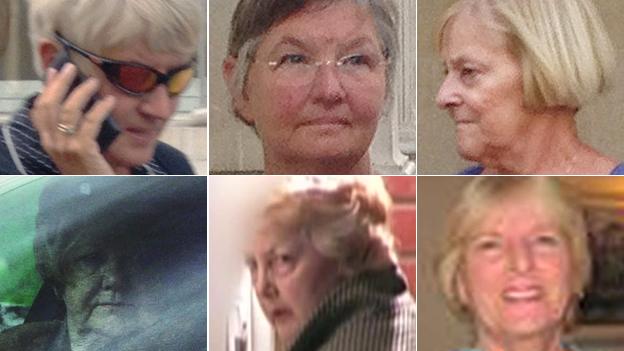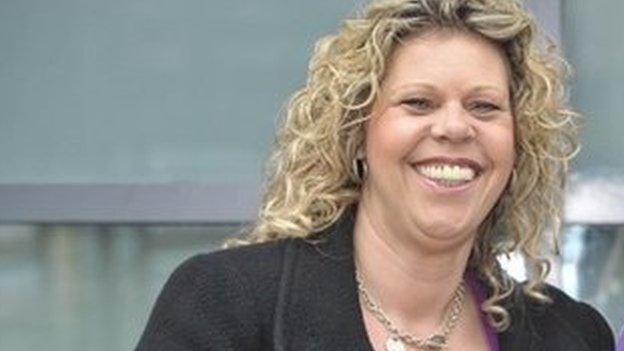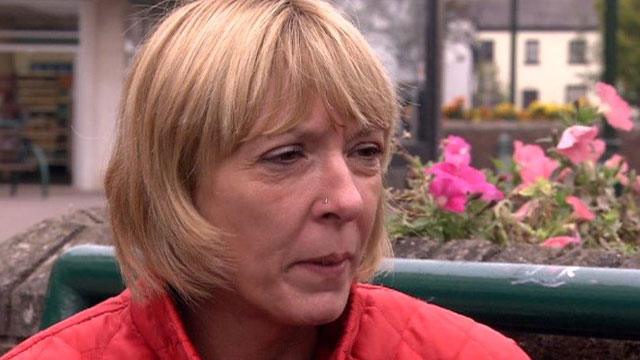Pyramid scheme women to pay back £500,000
- Published

Clockwise from top left: Hazel Cameron, Mary Nash, Susan Crane, Carol Chalmers, Jennifer Smith-Hayes, Laura Fox
Six women convicted of running a pyramid scheme in which thousands of people lost money have been ordered to pay more than £500,000 in confiscation and costs.
The "Give and Take" scheme operated in south-west England and south Wales six years ago.
The six, all from the Bristol area, saw more than £20m invested by about 10,000 people, often vulnerable women.
Bristol Crown Court gave all defendants three months to make the payments.
Stephen Blake, from the Competition and Markets Authority, said: "These orders, external demonstrate our commitment to ensuring to the fullest extent possible that those who are convicted of offences in breach of consumer law do not benefit from their criminality."
'Beg, borrow or steal'
During two trials in 2012 and 2014, the six women were all served with prison sentences, which they have now served.
Laura Fox, of East Harptree, Jennifer Smith-Hayes, of Bishopsworth and Carol Chalmers, of Weston-super-Mare, were convicted of operating and promoting the scheme during a trial in 2012. Each was sentenced to nine months in prison.
A further three women, Mary Nash, Susan Crane, both from Broadleas, Bristol, and Hazel Cameron, of Chew Stoke, pleaded guilty, at a trial in September 2014, to operating and promoting the pyramid scheme, and were sentenced to six months each.
The group had encouraged people to "beg, borrow or steal" £3,000 to put into the scheme between May 2008 and April 2009.
It began in Bath and Bristol and spread to Gloucester, Bridgwater, Cheltenham, Torquay, Weston-super-Mare and Wales.
Those running the scheme told its investors it was a quick, easy and legal way to make cash, and by paying in £3,000 they would receive more than £20,000, as more members joined.
But eventually the number of new recruits dried up and the scheme collapsed, with 90% of investors losing their money.
- Published15 July 2015

- Published18 September 2014

- Published18 September 2014
